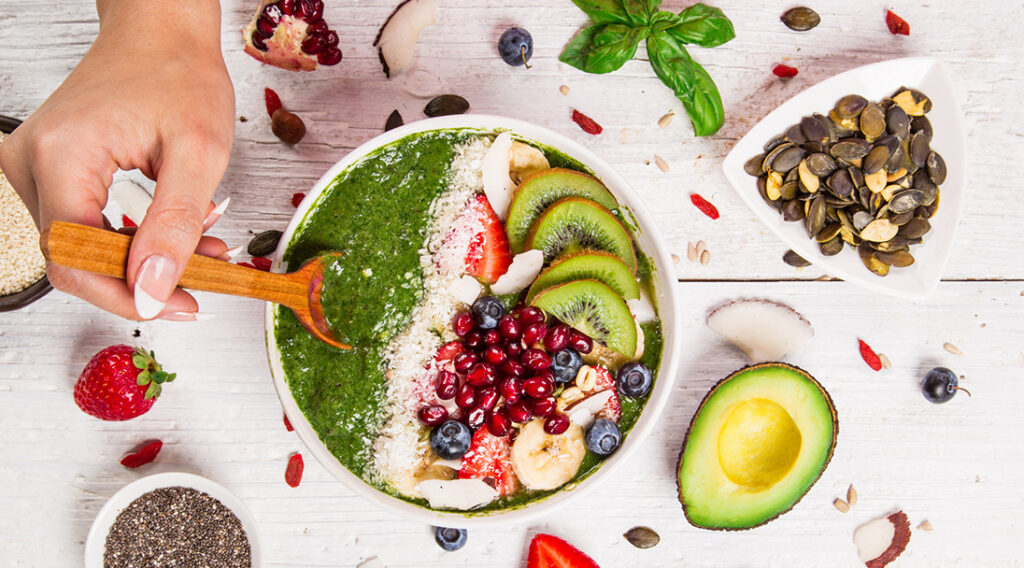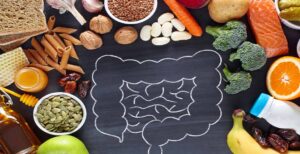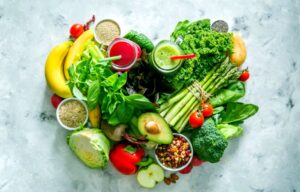The Gut-Brain Connection: How Fiber and Probiotics Enhance Mental Health

The gut-brain connection is a fascinating and growing area of research that explores how our digestive system affects our mental health. This relationship, known as the gut-brain axis, involves complex interactions between the gut microbiota (the community of microorganisms living in our intestines) and the brain. Two key components that play significant roles in this connection are fiber and probiotics. Here’s how they work together to enhance mental health.
The Role of the Gut Microbiota
Our gut is home to trillions of bacteria and other microbes that help digest food, produce vitamins, and protect against pathogens. These microbes also communicate with the brain through the nervous system, hormones, and immune pathways. A balanced gut microbiota is essential for maintaining overall health, including mental well-being.
Fiber: The Unsung Hero
Fiber is a type of carbohydrate found in plant-based foods like fruits, vegetables, whole grains, and legumes. Unlike other carbohydrates, fiber isn’t digested by our bodies. Instead, it passes through the digestive system and serves as food for the gut bacteria. This process, known as fermentation, produces short-chain fatty acids (SCFAs) like butyrate, propionate, and acetate. These SCFAs have anti-inflammatory properties and can cross the blood-brain barrier, influencing brain function.
Research has shown that a high-fiber diet can improve gut health by promoting the growth of beneficial bacteria. This, in turn, can help reduce inflammation and improve mood and cognitive function. For example, a study found that individuals who consumed more fiber had lower levels of anxiety and depression.
Probiotics: The Friendly Bacteria
Probiotics are live microorganisms that provide health benefits when consumed in adequate amounts. They are often referred to as “good” or “friendly” bacteria and can be found in fermented foods like yogurt, kefir, sauerkraut, and kimchi, as well as in supplement form.
Probiotics can help restore the balance of the gut microbiota, especially after it has been disrupted by factors like antibiotics, poor diet, or stress. They produce neurotransmitters such as serotonin, dopamine, and gamma-aminobutyric acid (GABA), which are crucial for regulating mood, anxiety, and stress response.
Several studies have highlighted the positive effects of probiotics on mental health. For instance, a review of clinical trials concluded that probiotic supplementation significantly reduced symptoms of depression and anxiety. Another study found that people who consumed a probiotic-rich diet had lower levels of perceived stress.
The Synergy Between Fiber and Probiotics
Fiber and probiotics work synergistically to support gut health and, consequently, mental health. Fiber acts as a prebiotic, providing the necessary fuel for probiotics to thrive. When probiotics ferment fiber, they produce SCFAs and other metabolites that benefit both the gut and the brain.
Incorporating a diet rich in fiber and probiotics can help create a healthy gut environment, reduce inflammation, and improve the production of mood-regulating neurotransmitters. This holistic approach can enhance mental health and overall well-being.
Practical Tips for a Gut-Healthy Diet
- Eat a Variety of Fiber-Rich Foods: Include plenty of fruits, vegetables, whole grains, nuts, seeds, and legumes in your diet.
- Incorporate Fermented Foods: Add yogurt, kefir, sauerkraut, kimchi, and other fermented foods to your meals.
- Consider Probiotic Supplements: If you have specific gut health concerns, consult with a healthcare provider about taking probiotic supplements.
- Stay Hydrated: Drinking enough water helps fiber work effectively in the digestive system.
- Limit Processed Foods: Reduce the intake of high-sugar and high-fat processed foods that can disrupt gut microbiota balance.
By paying attention to your diet and including both fiber and probiotics, you can support your gut health and enhance your mental well-being. The gut-brain connection reminds us that what we eat not only fuels our bodies but also nourishes our minds.





